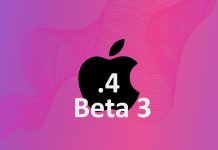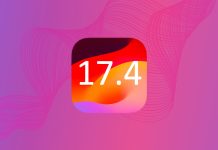 There’s a lot to say about the financial call from yesterday, but I decided to hold off until we got a semi-official transcript from someone willing to put pen to paper. Macworld has put their transcript online.
There’s a lot to say about the financial call from yesterday, but I decided to hold off until we got a semi-official transcript from someone willing to put pen to paper. Macworld has put their transcript online.
First of all, I was as surprised as everyone else to see that Steve Jobs joined the call. Jobs doesn’t mysteriously appear on financial calls often, and then proceed to put boot to ass. There’s calling someone out, and then there’s Jobs calling someone out, and boy did he do it in grand fashion. Whether you’re an Apple fan or not, you can probably agree that Jobs took a pretty major swing at Google, alongside a quick jab at RIM.
He primarily took aim at the “openess” claim, as well as the fragmentation worries that some developers have when developing for Android.
On Openess
Jobs said,
Google loves to characterize Android as “open,” and iOS and iPhone as “closed”. We find this a bit disingenuous, and clouding the real difference between our two approaches…Many Android OEMs, including the two largest, HTC and Motorola, install proprietary user interfaces to differentiate themselves from the commodity Android experience. The user’s left to figure it all out.
It’s an argument worth having. What is the definition of open these days? Because I don’t think I’m alone in wondering what exactly each of these companies are fighting about. Android is certainly not “open,” in the traditional sense. There’re patents, there’re trademarks, and there’s a whole pile of stuff that Google would never give developers access to. Add in the other manufactures’ use of proprietary software, like Jobs mentioned, and it becomes quite obvious that “Open” is being used as a marketing ploy.
Android may be “more open” than iOS, but it’s certainly not completely “open.”
On App Stores
Amazon, Verizon, and Vodafone have all announced that they are creating their own app stores for Android. So there will be at least four app stores on Android, which customers must search among to find the app they want, and developers will need to work with to distribute their apps and get paid.
So, this isn’t a major surprise. Most tech-enthusiasts knew these stores were coming. Again, Jobs doesn’t hold any punches. Before getting into just what Jobs is saying here, there’s an important parallel that needs to be made– finding desktop software versus finding mobile software.
It’s pretty obvious that finding applications for your mobile device is easier than finding software for desktop computer. Having access to every application in one place is a benefit for most users, beginner or advanced. I don’t know many people who complain about having to go to an App Store to find what they’re looking for, instead of having to go to Google to search through a million places to find the right software bundle.
Is multiple App Stores something people actually want? I say people in the all-encompassing sense, not in the “geeks will love it” sense. I know a lot of people who still struggle with the Apple’s App Store, and I can’t even begin to imagine having to explain to them how to use multiple App Stores. Fragmentation is a real worry, and anyone who says it isn’t can’t see the whole all-encompassing picture. Sure, you might be capable enough to use multiple App Stores, but can your parents, grandparents, and neighbours? Not likely. This might be a non-issue when we finally see the other stores roll out, but until then I’d like to go on record saying it’s probably a bad idea. Jobs said it better than I could: “When selling the users who want their devices to just work, we believe that integrated will trump fragmented every time.” I know a lot of people who agree with that approach, most of them are Windows users, and those who are have become completely sick of having to manage their technology.
Article Via Macworld







